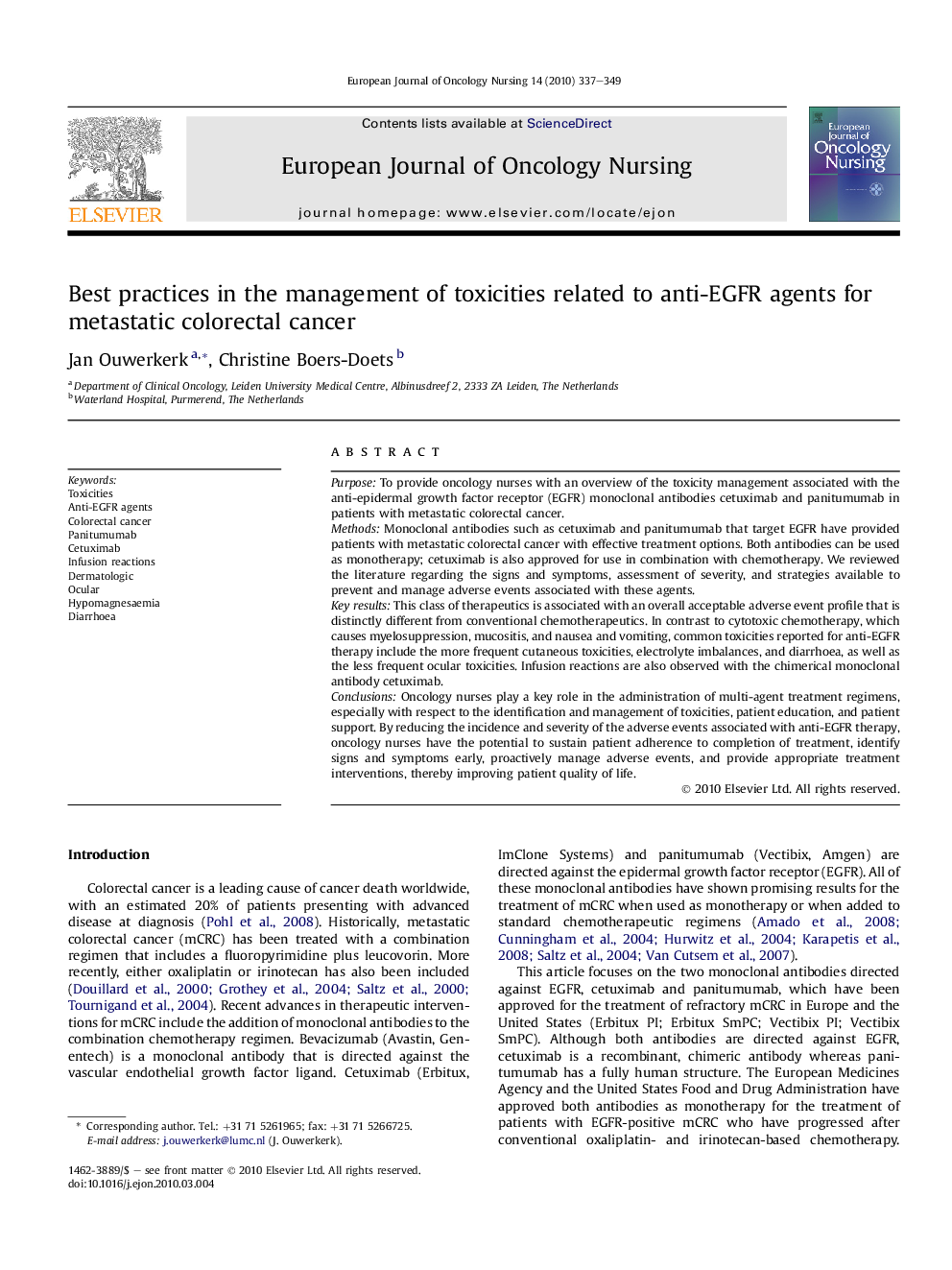| Article ID | Journal | Published Year | Pages | File Type |
|---|---|---|---|---|
| 2649930 | European Journal of Oncology Nursing | 2010 | 13 Pages |
PurposeTo provide oncology nurses with an overview of the toxicity management associated with the anti-epidermal growth factor receptor (EGFR) monoclonal antibodies cetuximab and panitumumab in patients with metastatic colorectal cancer.MethodsMonoclonal antibodies such as cetuximab and panitumumab that target EGFR have provided patients with metastatic colorectal cancer with effective treatment options. Both antibodies can be used as monotherapy; cetuximab is also approved for use in combination with chemotherapy. We reviewed the literature regarding the signs and symptoms, assessment of severity, and strategies available to prevent and manage adverse events associated with these agents.Key resultsThis class of therapeutics is associated with an overall acceptable adverse event profile that is distinctly different from conventional chemotherapeutics. In contrast to cytotoxic chemotherapy, which causes myelosuppression, mucositis, and nausea and vomiting, common toxicities reported for anti-EGFR therapy include the more frequent cutaneous toxicities, electrolyte imbalances, and diarrhoea, as well as the less frequent ocular toxicities. Infusion reactions are also observed with the chimerical monoclonal antibody cetuximab.ConclusionsOncology nurses play a key role in the administration of multi-agent treatment regimens, especially with respect to the identification and management of toxicities, patient education, and patient support. By reducing the incidence and severity of the adverse events associated with anti-EGFR therapy, oncology nurses have the potential to sustain patient adherence to completion of treatment, identify signs and symptoms early, proactively manage adverse events, and provide appropriate treatment interventions, thereby improving patient quality of life.
